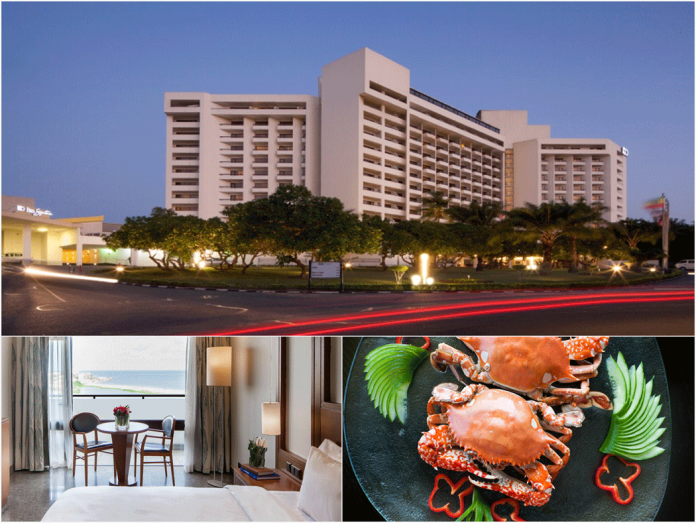In the second part of his presentation of Nigeria’s tourism potential, Special Correspondent Renn Offor begins with Lagos, the richest state in almost everything, including hotels, festivals, and aquatic splendour.
He also cites, among others, the Sukur Kingdom in Adamawa in the North, Idanre Hill (South West), Ogbunike Cave (South East), and Alok Ikom Monoliths (South South).
Lagos, one of the most populous states in Africa, outshines others with infrastructural masterpieces, exquisite waterfronts, arts and cultural centres, relaxation parks, classy eateries, romantic restaurants, specialist guest and dinning houses, mega shopping malls, top hotels.
Lagos also boasts the highest number of attractive and most visited tourists’ destinations in Nigeria.
Religious tourism
It has the largest church congregation in the world, the Redeemed Christian Church of God, whose annual convention attracts no fewer than five million worshippers.
The Faith Tabernacle in Canaanland, Ota, a suburb of Lagos – listed in the Guinness Book of World Record as an architectural masterpiece – attracts about a million worshippers in three services on Sunday, and its annual Shiloh convention in December is beamed live around the world.
The Synagogue Church of All Nations, Ikotun, Lagos is another big tourists’ destination.
Others include Deeper Life Bible Church, Lord’s Chosen Charismatic Revival Movement, Christ Embassy, and Daystar Christian Centre.
Hotels
Lagos, the megacity, has some of the best hotels and nightlife hubs in the country.
Top on the list is Eko Hotel & Suites, unique over the years for providing best quality luxury in both services and infrastructure.
With the addition of Eko Signature, this hotel group is not relenting in dominating hotels in the future not just in Nigeria but Africa as a whole.
Changing the face of Lagos
In the past one and a half decades Lagos State has seen continuous growth in new towns and is responding well in developing infrastructure to sustain such fast growing megacity.
There are ongoing construction works in all councils. A few months ago, the first cable-held bridge in West Africa was opened in Lagos, which is also the most expensive in Africa.
The state is equally improving on transportation through bus rapid transit; waste disposal through private sector participation; security through a rapid response network that involves camera monitors on streets and highways.
Lagos, also called “The Centre of Excellence”, demonstrates its commitment to the green revolution through tree planting and using flowers to create a lush, green, beautiful landscape.
Now, one can walk the streets of the city and breathe healthier, fresher air.
Aquatic spendour
Lagos has about 120 kilometres of coastland and you can enjoy a boat cruise from Lekki Pennisula through the lagoon and other rivers and inland waterways that abound.
The state government has initiated the annual Lagos water regatta through which residents and tourists savour the aquatic splendour of the shoreline.
The annual festival holds every Easter period and features several water-based cultural, sporting, and recreational activities in which the coastal communities take part.
The social, cultural, and water sporting activities invigorate the tranquil nature of the Lagos Island waterfronts; and regattas put Lagos on the global tourism destination map.
Black Heritage Festival
There is also the Lagos Black Heritage Festival, inspired by the spirit of merriment for which Lagos has no equal.
It celebrates African creativity with a rich and assorted display of traditional and contemporary dance, music, painting and photo exposition, drama, design, fashion display, international symposium, film and video fiesta, and other artistic and intellectual offerings.
Eyo Festival
Eyo Festival, dating back to 1750, involves masquerade performers in white robes and dancers.
The main attraction holds at Tafawa Balewa Square and attracts thousands of visitors each year.
Yoruba Arts Festival
Yoruba Arts Festival takes place in April in Lagos every year, promoting the art and culture of the Yoruba people in the South West.
Performers entertain the crowds; artistes display their crafts in exhibitions.
International Jazz Festival
The Lagos International Jazz Festival exposes Lagosians and tourists to famous jazz artistes from far and near.
Cultural heritage sites
Nigeria is replete with world renowned cultural heritage sites, which include
Sukur Kingdom
Sukur Kingdom in Adamawa comprising terraces made of dried stone and granite stone. It is listed among UNESCO World Heritage sites.
Oshogbo Sacred Grove
Osun-Oshogbo Sacred Grove (Osun State) includes a river that is said to give fertility and bleedings.
Thousands of worshippers and tourists gather there every year.
It is also listed among UNESCO World Heritage sites.
Oban Hills
Oban Hills (Cross River) harbours wildlife and plants of unknown species.
The Xavier’s Green Bull, Cassin’s Hawk eagle, Bat Hawk, Crested Guinea fowl, lyre-tailed Honey guide, and about 500 chimpanzees are there.
Idanre Hills
Oke Idanre Hills (Ondo) is over 3,000 feet above sea level
Ogbunike Cave
Ogbunike Cave (Anambra) has 317 descending steps.
Alok Ikom Monoliths
Alok Ikom Monoliths (Cross River) has over 300 carved stones with varying heights, and is set in circular groups facing each other.
Kano Walls
Ancient Kano Walls, some of West Africa’s most impressive monuments, reflect the people’s historical, cultural, and spiritual importance.
Slave Route, Moat, Surame
Gashaka Gumpti National Park, Arochukwu Long Juju Slave Route, Sugbon in Ogun, Benin Moat, and Sokoto State’s Surame cultural landscape, are all listed as World Heritage sites by UNESCO.
Abundance lying fallow
Nigeria’s abundant tourism resources are still largely untapped.
However, the future is bright with the growing awareness of tourism development and several state governments making positive policies and reaching out to forge partnerships with the private sector.
Nigeria’s tourism attractions stem from the beauty of its cultural diversity with over 250 languages.
The history of these diverse cultures and traditions is shown through the relics of the traditional ways of life preserved in local customs, through a wealth of various products of arts and crafts.
One element visitors will find fascinating is the positive attitude, coupled with a willingness to help, common among Nigerians.












